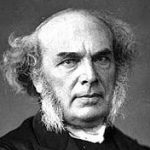The Point: Thanks should come naturally when I think about God.
Approaching God: Psalm 100:1-2.
[1] Make a joyful noise to the LORD, all the earth! [2] Serve the LORD with gladness! Come into his presence with singing! [ESV]
This psalm was sung by the Israelites first in the Temple, and then in the daily synagogue services. It has only five verses, but it is an eloquent summons to worship; and the worship to which it bids us is to have two marks. First, joy is to characterize our worship. Psalm 100 is one of a group of eight which celebrate the kingly sovereignty of Jehovah. For if God is king, what can our worship be but joyful? Away with funeral faces and doleful dirges. Joy, gladness, and singing are to be the accompaniment of worship. Our worship is to be universal as well as joyful: Make a joyful noise to the Lord, all the earth! When we assemble for worship, therefore, we should desire not only to make a joyful noise ourselves, but that all nations should unite with us in our joyful task. The rest of this psalm is devoted to an exposition of why the nations should join us.
This psalm contains seven great imperatives: make [1], serve [2], come [2], know [3], enter [4], give thanks [4], and bless [4]. These seven imperatives are then joined by two explanations of why we should give thanks, the first halfway through the psalm and the other at the end. Psalm 100 contains: (1) a statement of how to give thanks, (2) an explanation of why God’s people must give thanks, (3) an invitation to give thanks, and (4) a final great expression of praise or thanksgiving. How should we show appreciation to God? We cannot thank God by giving Him something. He needs nothing from us. What can we do: the opening verses suggest three things. First, we can shout or make a joyful noise to the Lord [1]. That seems a strange place to begin, particularly since the psalm envisions the people of God giving thanks together in God’s house. Is that really what we are to do? Are we to come to church in order to shout? It is helpful to know that the Hebrew word originally meant a glad shout, such as loyal subjects might utter when the king appears among them, the emphasis being on the gladness. This should be clear from the first two verses since the idea of joy appears there three times. It would be accurate to express this idea by saying that the people of God are to praise God loudly because they are happy with Him. Second, we can serve the Lord with gladness [2]. The psalm suggests that we serve God by our worship or that we minister to Him with our praise. This is to be done with gladness, or a rejoicing heart that knows and loves God. Third, we can come into his presence with singing [2]. This refers to formal worship, since the psalm describes the coming of the people of God to Jerusalem and its temple enclosure. The point is that worshippers are regularly to come before Him, in public services, which are designed for God’s people to magnify His name.
Apprehending God: Psalm 100:3-4.
[3] Know that the LORD, he is God! It is he who made us, and we are his; we are his people, and the sheep of his pasture. [4] Enter his gates with thanksgiving, and his courts with praise! Give thanks to him; bless his name! [ESV]
Worship is not only to be joyful and universal, but reasonable. Know that the Lord, he is God! How we worship depends on what we know. Knowledge and understanding play an important part in our worship. Christians do not worship “an unknown god,” like the ancient Athenians, but a God who has revealed Himself. What then are we to know? The gods of the heathen are idols; they can neither see, nor speak, nor act. Our God is a living and active God. Moreover, the chief evidence which the psalmist gives of His activity is to be found in the history of Israel. He redeemed His people from their bondage in Egypt, entered into a covenant with them at Mount Sinai, led them across the wilderness, and settled them in the Promised Land. In a word It is he who made us, and we are his. Of this sovereign, intervening activity of God, two vivid illustrations are given. First, God is the potter. It is he who made us. God is here likened to a craftsman. It is not the individual, but the nation, to which the phrase refers. Israel is sometimes called by God in the Old Testament the work of my hands [Isaiah 29:23; 60:21]. With what immense skill and patience did the divine potter pursue His labor. His raw material was always unpromising, and often recalcitrant. Others would have long since abandoned all hope of success. But he persevered. Undeterred by any setback, and refusing to be discouraged by any disappointment, he went on fashioning Israel into a vessel of honor, fit for His own use. Secondly, God is the shepherd. We are his people, and the sheep of his pasture. The potter who made them was the shepherd who tended them. Through all the vicissitudes of their colorful career, He protected and guided them. He watched over them with all the conscientious tenderness of an eastern shepherd. So it is with us also. God has redeemed us and brought us to Himself. We can say that He is our potter and our shepherd. Nothing could indicate more clearly and emphatically than this what we owe to the sovereign grace of God. It is He who has made us and we are His people. We have neither created nor constituted ourselves the people of God. What we are is therefore cause for praise, not for pride. No wonder the psalmist bursts into another call to worship Enter his gates with thanksgiving, and his courts with praise! Our worship is to be joyful simply because it is grateful.
The fourth imperative in this psalm is know [3]. This is very important. By including this word the psalm tells us that our thanksgiving to God must be intelligent; we must know whom we are thanking. The Athenian Greeks had been worshiping “an unknown god.” But when Paul stood on Mars hill to address them, he said, What therefore you worship as unknown, this I proclaim to you [Acts 17:23]. We cannot rightly thank or worship a God who is unknown to us. So we ask, What is it about God we should know? Verse 3 gives two answers: (1) He is our Creator, and (2) he is our Redeemer. The first thing we should notice about this verse is the connection between knowing God as Creator and knowing ourselves as His creatures. This is the point John Calvin made in the opening chapter of his Institutes of the Christian Religion when he pointed out that the natural result of knowing God is to know ourselves, and that the only way we really know ourselves is by knowing God. Knowing God and knowing ourselves always go together. But there are two specifics: (1) Knowing God as Creator. What happens to us when we do not know God as Creator? We imagine that we are our own creators. Sometimes we do this scientifically. This is what lies behind the surprising persistent appeal of evolution, a theory that has very little if any true evidence in its support. The appeal of evolution is that it does away with the need for God. It explains how things got to be as they are without any divine creative force behind them. Of course, if we do not need God as our Creator, then we do not need to be thankful. Why should we? We have no one but ourselves to thank. Another way we imagine that we are our own creators is by an inordinate admiration of our abilities or achievements. This is what the humorist meant when he described the Englishman as “a self-made man who worships his creator.” It is only when we know God as our Creator that we know ourselves as His creatures and find ourselves appropriately thankful to Him. (2) Knowing God as Redeemer. Even more important than knowing God as Creator is knowing Him as Redeemer, which is what the words his people and the sheep of his pasture ultimately refer to. It is hard at this point not to think of David’s moving, personal expression of faith in God as his shepherd in Psalm 23:1: The Lord is my shepherd; I shall not want. Or we think of the way the Lord explained it to the disciples in His extensive discourse on Himself as the Good Shepherd, recorded in John 10: I am the good shepherd. If there is no other reason why we must be thankful to God it is because He has both made us and redeemed us. No one should be more thankful to God than the sheep who are cared for by the Good Shepherd. The second thing we need to notice about this verse is the implication of the words he who made us. If it is really God who has made us, not ourselves, and if we are His because He made us, then we are His to do with as seems best to Him. Has He given us days of unusual prosperity? If so, it has pleased Him to do it; we must be thankful to Him for being the good and generous God He is. Has He given us days of troublesome trials or sorrow? If this is the case, we must thank Him for that, knowing that He is wise and gracious even in allowing such hard times. The apostle Paul said, I have learned in whatever situation I am to be content. I know how to be brought low, and I know how to abound. In any and every circumstance, I have learned the secret of facing plenty and hunger, abundance and need. I can do all things through him who strengthens me [Phil. 4:11-13]. There is one more important point in this verse, in the phrase we are his. Regardless of what may happen to us, we are still His. Troubles inevitably will come. but it is no matter. We are His. The third part of the psalm is an invitation to thank God, and once again there are three strong imperatives: enter … give … bless [4]. The emphasis in verse 4 is clearly upon the gathering of God’s people to the temple to thank and praise God together. It teaches that there is a special aspect of thanksgiving that involves the whole people of God together and not just the private prayers of individuals. This is what we should expect, of course. For when God called us to Christ He did not call us in isolation but to be His elect people together, participating in a common heritage. This means that those among whom, for whom, and with whom we should give thanks are other believers. Moreover, we should exercise responsibility toward these others by encouraging a thankful response in them toward God.
Adoring God: Psalm 100:5.
[5] For the LORD is good; his steadfast love endures forever, and his faithfulness to all generations. [ESV]
The Lord is not only great, but good. There is ground to praise Him not only for what He has done, but for what He is. Wherein does His goodness consist? It consists in his steadfast love which endures forever, and his faithfulness to all generations [5]. Our God is a covenant-keeping God. He is neither fickle nor faithless; His word is dependable, and His promises are trustworthy. From generation to generation He remains the same. From everlasting to everlasting He is God. We are summoned to worship Him not just because He has made us and taken us to Himself to be His own, but because He will stay by us. The heavenly potter will never discard His work; He will persist in fashioning it into a vessel that is beautiful and useful. The heavenly shepherd will never abandon His sheep; He will make them lie down in green pastures and lead them beside still waters. His goodness and mercy will follow them all the days of their life. The vessel is safe in the potter’s hand. The sheep are safe in the shepherd’s arms.
The final verse of the psalm, like verse 3, explains why you and I should thank God. But it is not just a repetition of the first explanation. The third verse said that we should thank God because of what He has done; He has both made and remade us. That is, He is both our Creator and Redeemer. The final verse invites us to thank God because of who He is. It tells us three things about Him. (1) God is good. The gods of the heathen were not good. They were selfish and capricious. You could never know when they might turn against you and do you harm. Not so our God. The God of the Bible is and has always been good. When He created the world and all that is in it, He saw that it was good [Gen. 1:4-31]. When He gave us His law, that law was good [Rom. 7:12]. When He reveals His will to us, His will is good and acceptable and perfect [Rom. 12:2]. The word gospel means the good news. (2) God is love. This steadfast love endures forever. He has many attributes. But nothing lies so much at the very heart of God as His covenant-love for His people. the Hebrew word here, hesed, describes the faithful and steadfast love, mercy, and kindness of our Sovereign Yahweh for all His covenant children. (3) God is faithful. We live in a world of change. In the midst of a rapidly changing world it is a comfort to know that God Himself is unchanging. Moreover, He can be counted on to remain as He has been. Has God been good in the past? Of course! Then He will always be good. You need never worry that He might cease to be good or change His good ways. Has God been loving? Of course! Then He will always be loving. His very nature is love. You need never worry that He will cease to love you. Has He seen you through difficult times? Very few Christians have avoided such difficult times altogether. Yet those who have gone through them testify that God has kept them securely. Well, then, He will do it for you also, whatever may come. Has anyone ever had greater reasons to thank God than we who are His redeemed people, who know Him not only as our Creator but also as our loving shepherd and Lord? Then let us, with all the earth, make a joyful noise to the Lord.
Questions for Discussion:
1. List the seven great imperatives of worship found in this Psalm. What is the object or focus of each command? As you enter into worship this Sunday, think about how you can incorporate each of these commands into your worship of our Great God.
2. Note that the center [3] and the end [5] of this Psalm deals with knowledge. How we worship God depends upon what we know about Him. Our praise, rejoicing, and worship of our Lord must center upon and flow out of knowing certain things about our Sovereign Lord. What things in verse 3 does the psalmist draw our attention to in this Psalm that His people should know about God? What two illustrations does the psalmist use in verse 3?
3. Verse 5 focuses on God as the Lord of His Covenant with His people. Here the psalmist is concentrating on who God is and what His people should know about His character. How does God’s steadfast love and faithfulness inform our worship and praise?
References:
Psalms, volume 2, James Boice, Baker.
Psalms, volume 2, Steven Lawson, Holman Reference.
Parallel Classic Commentary on the Psalms, Spurgeon, Calvin, Henry, AMG Publishers.
Favorite Psalms, John Stott, Baker.

















